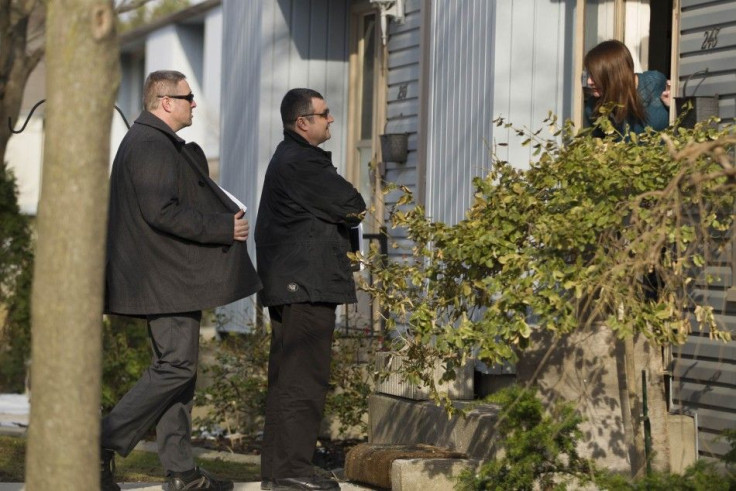Muslim Employee In UK’s Anti-Terror Watch Dog Fired For Extremist Views: Defends ISIS Atrocities

A Muslim employee, who was a British government worker in a senstive agency that regulates the country’s anti-terror planning has been fired after his superiors learned of his radical Islamist views. According to Telegraph, the preacher was with the Government watchdog that is into planning police forces’ deployment, training and readiness for terrorism. The report said the radical Islamic preacher worked for two years and led a double life, working in day hours as government servant and preaching extremist views in the night.
The report said the man, Al Andalusi, whose real name is Mouloud Farid had least one more name and worked in disguise for nearly two years at the London office of Her Majesty’s Inspectorate of Constabulary, which is in charge of assessing activity of police forces “ranging from neighborhood teams through serious crime to the fight against terrorism.” The man’s unsuitability for sensitive work should have been "obvious from the start,” noted Labour MP Khalid Mahmood.
The preacher was fired after the authorities came across extremist views which had strong defence of the brutal exploits of ISIS. For him, the ISIS is “no different to the history of some Western armies” and supported the right of youths to travel to Syria to fight.
“If merely going to fight overseas is condemned as terrorism, shouldn’t the U.K. arrest British volunteers joining the Israeli Defense Force which kills civilians in Gaza in a war against the Gazan government?” Andalusi wrote in an article for the Muslim Debate Initiative, a group he co-founded.
World Trade Attack
In a June 2014 post on his own website, he wrote, “ISIS crime is being actually a good student of the West, right down to their corporate structure and organization and ability to use social media." Further, in a talk at Queen Mary University, he dismissed the 9/11 terror attacks as “the day a vicious world empire found a publicly-acceptable excuse to bomb others, invade non-threatening nations, torture political dissidents and kill at least 300,000 innocent people.” Now Andalusi is saying his words have been taken out of context, and July 12 he posted a long rebuttal. “I have never worked in any government counterterrorism work, team or department,” he wrote, before offering a point-by-point refutation of the claims made in the news paper reports. But his denial itself contained a few questionable passages. “Do I support the re-establishment of a Caliphate? Of course, because a Caliphate is a part of Islamic belief, so integral is it to Islam that Sunnis and Shias originally split merely due to the question of who should be the Caliph,” al Andalusi wrote.
Counter Radicalisation
Meanwhile, the U. K Government’s flagship counter-radicalisation strategy is drawing flak as many Muslims who grow beards are facing the risk of being branded as terrorists and could be used as an alibi to clamp down on anti-austerity and environmental campaigners, according to hundreds of academics who wrote an open letter to The Independent.
Wide-ranging powers under the Counter-Terrorism and Security Act are forcing teachers, social workers, prison officers and NHS managers to report signs of radicalisation. Those suspected of extremism have to be sent on de-radicalisation programmes, while the system gets policed by Government inspectors.
Many flayed the new law as an assault on freedom of speech and a move towards a police state. Making an unprecedented intervention, academics, lawyers and public figures said the controversial law is going to make Britain less safe and will force radical political discussion underground. The signatories in the letter include Karen Armstrong and Baroness Ruth Lister, who is emeritus professor at Loughborough University.
Another signatory is Rizwaan Sabir, who is a lecturer in counter-terrorism and was wrongly arrested by Nottingham Police for downloading an al-Qaeda training manual from a U.S. Government website, which he was trying to use for his research. He later sued the police and was paid £20,000 in compensation.
(For feedback/comments, contact the writer at k.kumar@ibtimes.com.au)






